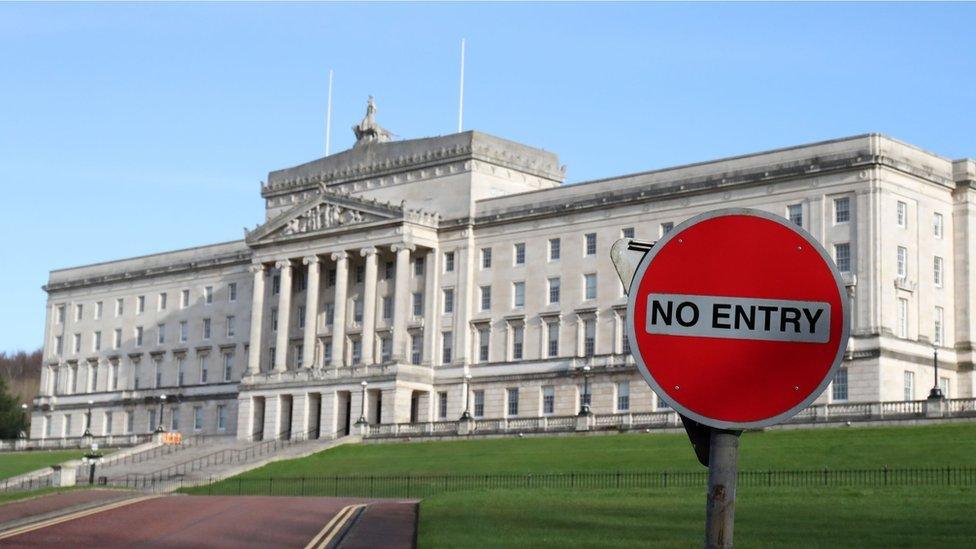Stormont talks: Sinn Féin wants election if no deal
- Published
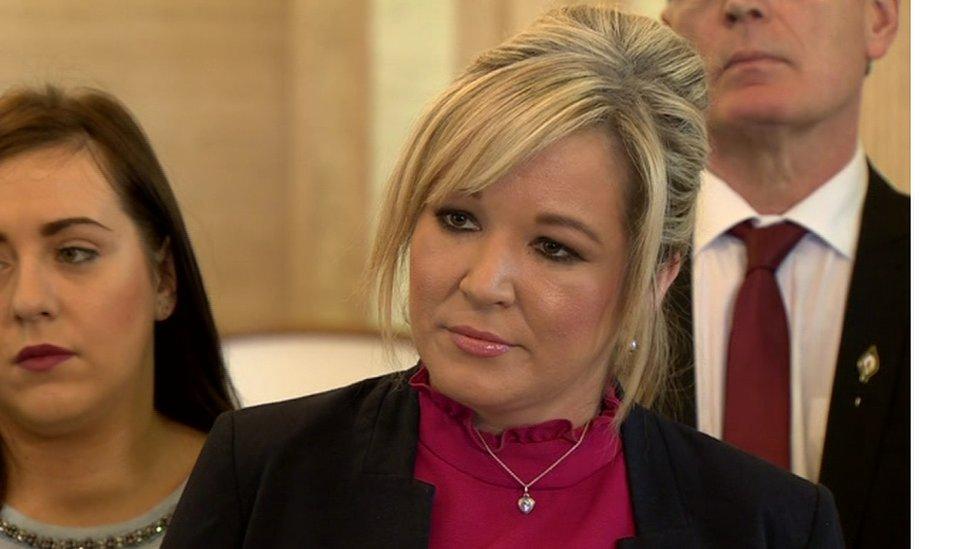
Michelle O'Neill said the talks had entered a critical phase.
Sinn Féin's Michelle O'Neill has said she wants an election if talks to form an executive fail by Friday.
She said discussions have entered a critical period, and there was little prospect of achieving agreement if fundamental issues are not addressed.
Northern Ireland Secretary James Brokenshire has given the parties until 18 April to reach a deal.
Snap elections on 2 March resulted in Sinn Féin coming within one seat of the Democratic Unionist Party.
Mr Brokenshire recently stated that there was "no appetite for another election".
The current round of talks has entered its second week with little sign of progress towards achieving a deal between the main parties.
Speaking at Stormont, Mrs O'Neill said that "post-Friday, I think it's over to the electorate to have their say".
Mrs O'Neill, Sinn Féin's northern leader, said they needed to see "a different approach from the DUP and, indeed, from the British government".
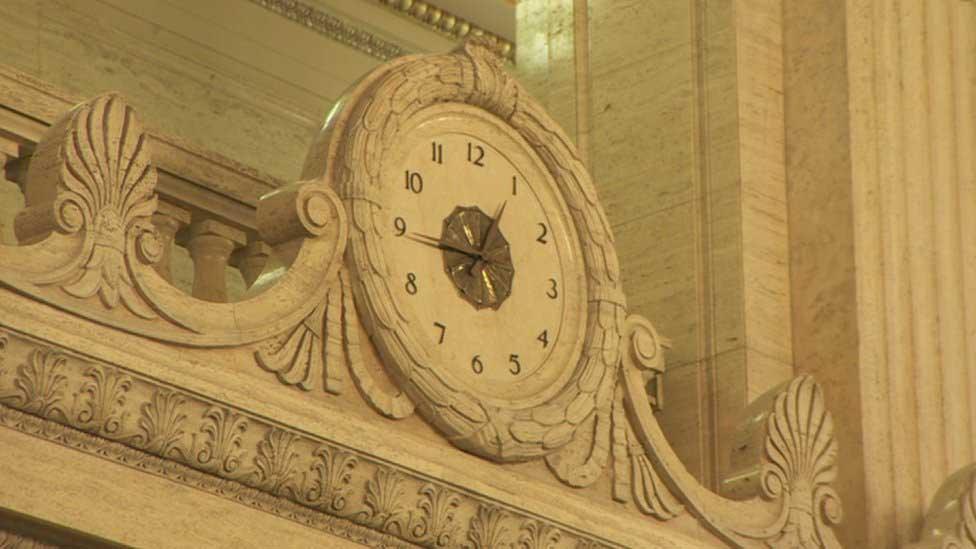
The clock at Stormont's Great Hall is ticking for Northern Ireland's political institutions
However, DUP leader Arlene Foster said: "There does not seem to be a coming together between the two parties."
The former first minister said Sinn Féin was "continuing to put forward party political demands".
She said she was "an optimist" but having seen some of the articles in the press recently "we doubted that they wanted a deal".
"It is they who have decided that they want to pursue their narrow political agenda," Mrs Foster added.
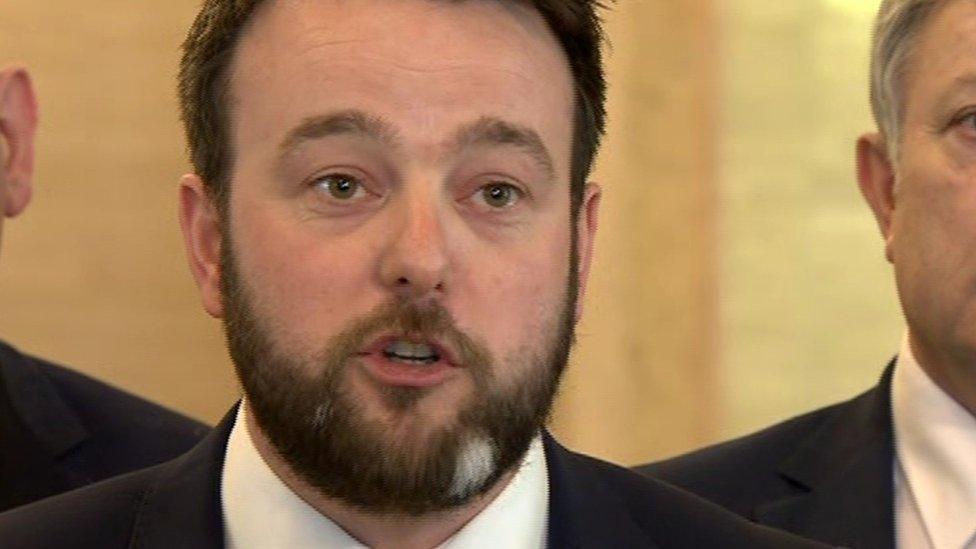
Colum Eastwood called for a recommitment to the Good Friday Agreement
The SDLP leader, Colum Eastwood, called for "a recommitment to the Good Friday Agreement" on its 19th anniversary.
He said he "got the feeling that some people are going through the motions".
Singling out the DUP for criticism, Mr Eastwood said that the party "haven't quite got the fact that things have changed" since last month's elections, and he called for respect for other people's identities.
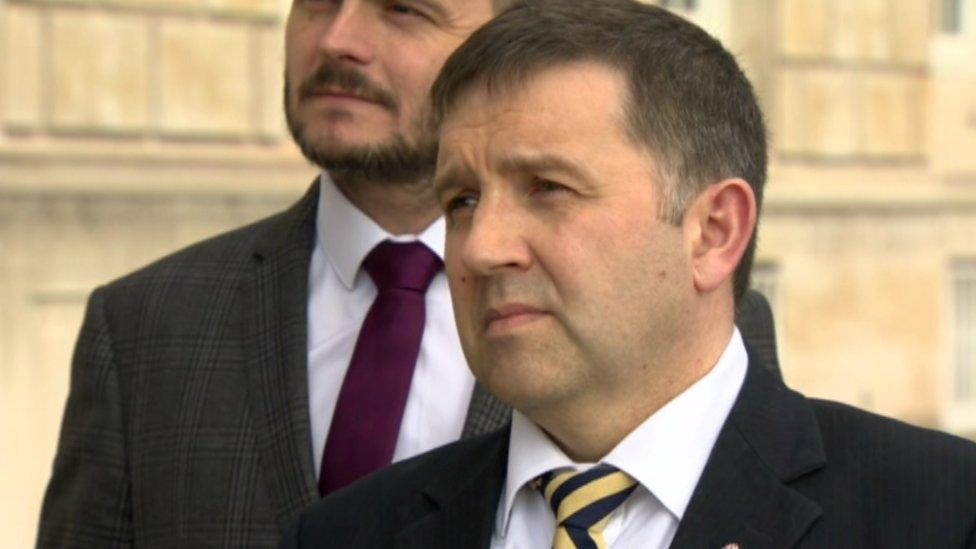
Robin Swann said fresh elections would be "an insult" to those who voted last month
The new Ulster Unionist leader, Robin Swann, said fresh elections would "actually be an insult to the people who voted".
Mr Swann said he was "a born optimist, and at this minute even I'm finding it difficult to keep up that positive vibe".
He said he thought an agreement was "still achievable", but if it were to be a deal between two parties for the benefit of two parties, "let it be an executive of two parties".

Analysis: Stephen Walker, BBC News NI political correspondent
As the parties continued talking on Monday the mood music remained downbeat.
There is little sign of agreement, and the atmosphere between the two larger parties, Sinn Féin and the DUP, does not seem to be very good.
Of the smaller parties, Alliance says another election will solve nothing, and the SDLP says that, while it does not fear an election, a deal could, and should be done this week.
The talks will continue on Tuesday, but, as we move towards the Friday deadline, the signs are that this process is in trouble and there is little indication that the talking will lead to a deal.

Mr Brokenshire told MPs in Westminster last month that he did not want to see a return of direct rule from London, but that he had to keep all options open.
He added that he would legislate on Northern Ireland's future when Westminster returns after Easter.
Botched energy scheme
Northern Ireland's two biggest parties, the DUP and Sinn Féin, blamed each other for the failure of initial talks.
The political deadlock came after a snap election on 2 March brought an end to Stormont's unionist majority and the DUP's lead over Sinn Féin was cut from 10 seats to one.
Under Northern Ireland's power-sharing agreement, the executive must be jointly run by unionists and nationalists, with the largest party putting forward a candidate for first minister.
Sinn Féin's Martin McGuinness quit as deputy first minister in January in protest against the DUP's handling of a botched green energy scheme.
The party said it would not share power with Mrs Foster as first minister until the conclusion of a public inquiry into the Renewable Heat Incentive (RHI) scheme.
Mr McGuinness died last month at the age of 66.
- Published27 March 2017
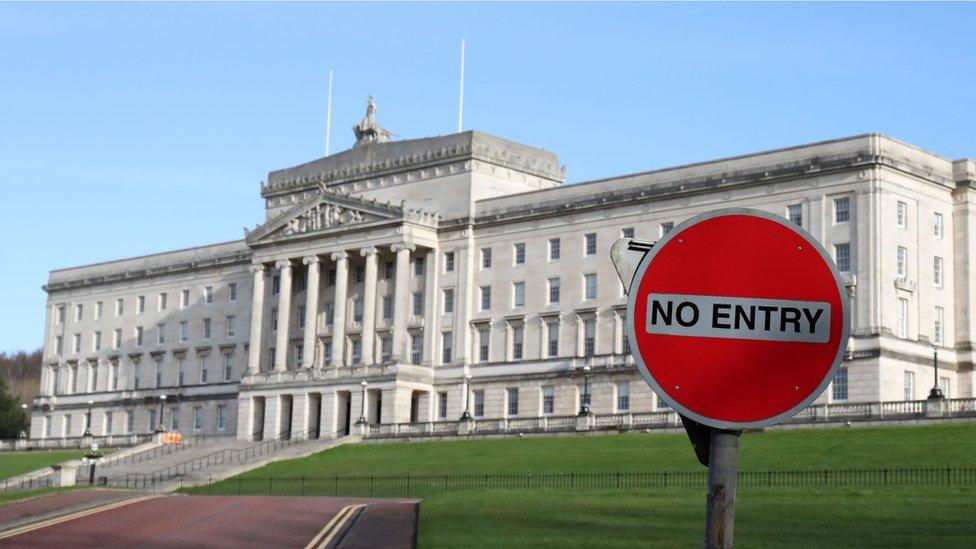
- Published3 April 2017
